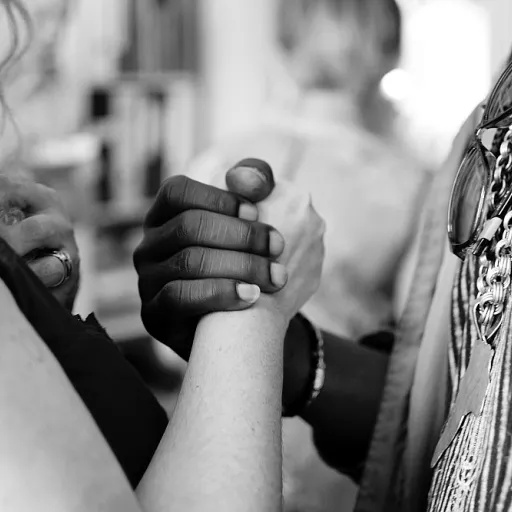
Why early education quotes matter in lifelong learning
The power of early words in shaping lifelong learning
When we think about lifelong learning, the first lessons and words we hear as children often set the tone for how we approach education throughout life. A simple quote from early childhood can echo in our minds for years, influencing the way we see challenges, play, and the process of learning itself. Early education quotes matter because they capture the essence of curiosity, resilience, and the natural desire to explore the world—qualities that are just as important for adults as they are for a small child.
Children learn not just from lectures or formal education, but from the environment around them. The way a child will interact with nature, the time they spend in play, and the encouragement they receive to ask questions all contribute to a lifelong love of learning. These early experiences, often summarized in memorable quotes, remind us that education is not confined to a classroom or a certain age. Instead, it is a continuous journey, shaped by every day and every new thing we discover.
- Quotes from early childhood education highlight the importance of play and exploration, showing us that learning happens everywhere.
- They remind adults that the child mind is open, curious, and ready to absorb a great deal from the world, especially when the environment supports growth.
- These words can inspire us to create better environments for children and adults alike, where learning is valued and nurtured.
As we move through life, the wisdom found in early education quotes can help us overcome challenges, stay motivated, and remember the joy of discovery. For those interested in how digital strategies can support this journey, exploring digital strategies for lifelong learning can offer practical ways to keep the spirit of early education alive in every stage of life.
How early education shapes our approach to learning
The foundation of curiosity and discovery
Early childhood is a unique period when the mind is open, curious, and ready to absorb the world. The way children learn during this time shapes their approach to learning for life. When a child is given the freedom to explore, play, and interact with their environment, they develop a natural love for discovery. This is why early education is not just about formal lectures or structured lessons. It is about nurturing the child’s will to learn and their innate curiosity.
Learning through play and environment
Many experts in childhood education emphasize that children learn best through play. Play is not only a way for children to enjoy themselves; it is also a powerful tool for understanding the world. When children play, they experiment, solve problems, and develop social skills. The environment, as highlighted by pioneers in education, plays a crucial role. A well-prepared environment encourages children to explore, make choices, and learn at their own pace. This approach respects the child’s individuality and supports their natural development.
- Children learn a great deal from small things in their daily environment.
- Time spent in nature or in creative play helps the child develop critical thinking and resilience.
- Adults can help a child by observing, guiding, and providing opportunities rather than controlling every moment.
Lessons for lifelong learning
The principles of early childhood education—respect for the child, learning through play, and the importance of environment—remain relevant throughout life. Adults can benefit from remembering how children approach new things: with openness, patience, and a willingness to try, fail, and try again. This mindset is essential for continuous learning, whether you are mastering a new skill or adapting to change in your career. For more creative strategies for lifelong learning, consider how early education shapes the way we approach challenges and opportunities.
Ultimately, the lessons learned in early childhood—curiosity, resilience, and the joy of discovery—are the same qualities that drive lifelong learners to grow and adapt in a changing world.
Famous early education quotes and their meanings
Timeless Words That Shape Our Views on Learning
Throughout history, many influential voices have captured the essence of early childhood education and its impact on lifelong learning. These quotes do more than inspire—they offer practical wisdom for anyone seeking to nurture a love of learning in themselves or others.- “Play is the work of the child.” This statement highlights how children learn best through play. When children play, they explore their environment, develop social skills, and make sense of the world. The idea reminds us that learning is not limited to formal lectures or structured lessons. Instead, meaningful learning often happens in everyday moments, especially when children are given time to play.
- “The environment must be rich in motives which lend interest to activity and invite the child to conduct his own experiences.” This quote, rooted in the philosophy of maria montessori, emphasizes the importance of a thoughtfully prepared environment. When the environment supports curiosity, children will learn naturally. It’s a reminder that both adults and children benefit from spaces that encourage exploration and self-directed learning.
- “Children are not things to be molded, but are people to be unfolded.” This perspective shifts the focus from controlling a child’s mind to supporting their natural development. It suggests that education should help each child realize their potential, rather than simply filling them with information.
- “Children learn more from what you are than what you teach.” This insight underlines the power of example. Whether in early childhood or adult learning, actions often speak louder than words. The way we approach challenges, curiosity, and kindness can have a greater impact than any formal lesson.
- “It is the supreme art of the teacher to awaken joy in creative expression and knowledge.” This quote reminds us that the role of an educator—whether a parent, mentor, or teacher—is to inspire a love of learning. When learning is joyful, it becomes a lifelong habit.
Applying early education wisdom to adult learning
Bringing Early Wisdom into Adult Learning Spaces
Many of the most powerful lessons from early childhood education remain relevant throughout life. The way children learn—through play, curiosity, and interaction with their environment—offers valuable guidance for adults aiming to keep their minds open and engaged. Adults sometimes forget that learning is not just about lectures or formal education. The child mind thrives when exploring new things, making mistakes, and asking questions. This same approach can help adults adapt to new environments, whether at work or in personal growth.- Play is not just for children. Adults benefit from playful exploration, which can spark creativity and reduce the fear of failure.
- The environment shapes learning at every age. Just as a small child needs a supportive space, adults thrive in environments that encourage curiosity and experimentation.
- Learning is a lifelong process. The habits formed in early childhood—such as asking questions and seeking understanding—remain essential for continuous learning.
Challenges in continuous learning and how quotes can help
Overcoming Obstacles with Wisdom from Early Education
Continuous learning often comes with its own set of challenges. As adults, we may face time constraints, self-doubt, or even a lack of motivation. Yet, the wisdom found in early childhood education quotes can offer powerful support during these moments. The simple truths that guide a small child—such as the importance of play, curiosity, and a nurturing environment—remain just as relevant throughout life.- Time and Motivation: Many adults struggle to find time for learning. Remembering that children learn best when they play and explore can inspire us to seek joy in our own learning experiences. Making time to play, even as adults, can help us approach new things with a child mind, open to discovery and growth.
- Fear of Mistakes: Early education emphasizes that mistakes are part of the process. A quote about how a child will learn by trying and failing can remind us to embrace errors as opportunities, not setbacks. This mindset helps us persist, even when lectures or formal education feel overwhelming.
- Adapting to Change: The environment, as highlighted in early childhood education, plays a huge role in how children learn. As adults, creating a supportive environment—whether at home or work—can make a great deal of difference. Adjusting our surroundings to encourage learning, just as environment maria montessori suggested, can help us thrive.
Finding Strength in Simple Words
Quotes from childhood education remind us that learning is a lifelong journey. When faced with challenges, reflecting on these words can renew our will to continue. For example, the idea that children play to understand the world can motivate us to experiment and try new things, even if we feel uncertain. The wisdom in these quotes is not just for children; it is for anyone who wants to keep growing and adapting throughout life. Whether it is a busy november day or a quiet moment of reflection, taking inspiration from early education can help us overcome obstacles and keep learning, no matter our age.Creating your own motivational quotes for learning
Finding Your Own Words for Lifelong Motivation
Creating your own motivational quote can be a powerful tool for continuous learning. When you craft a phrase that resonates with your personal journey, it becomes a reminder of your values and goals. This is especially true in lifelong learning, where inspiration can sometimes fade over time.- Start by reflecting on your experiences as a child or observing how children learn and play. Notice how a small child explores the environment, learns new things, and embraces each day with curiosity.
- Think about the role of play in your own learning. Play is not just for children; adults can also benefit from playful exploration and experimentation.
- Consider what you have learned from early childhood education principles, such as the importance of the environment and the child’s will to learn. These ideas can help you shape a quote that encourages perseverance and joy in learning.
- Use simple language. The most memorable quotes are often short and easy to recall, much like the wisdom found in early education.













